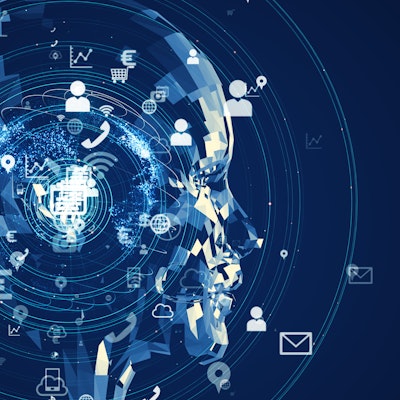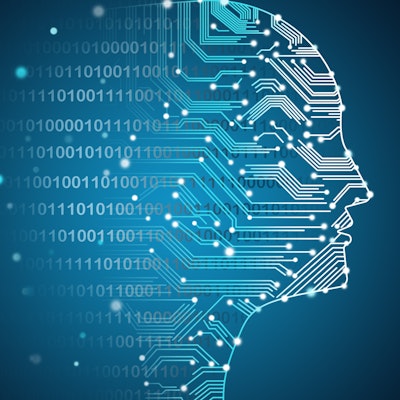Technology
The Latest
Podcasts, Blogs, and More


New technologies have always led to changes in society, though not always as quickly or drastically as people feared. Could artificial intelligence be different? Instead of letting a new AI reality unfold amid helpless hand-wringing, what if we tried to learn from the past? In this talk recorded at the 2024 Aspen Ideas Festival, a panel of thoughtful technology experts fro...


Where will artificial intelligence be in five years, or 10 or 20? What happens if the technology is regulated? And if it isn’t? How will it shape the world and the way we live our lives? The CEO of Microsoft AI, Mustafa Suleyman, has been working in this young field for more than a decade. He knows the AI landscape inside and out, and is a level-headed advocate for the tec...


Whether they publicly tout it or not, U.S. technology companies play a powerful role in politics, cultural issues and the way we live. Founder and investor Peter Thiel is one of the more visible and outspoken Silicon Valley figures. A member of the so-called "PayPal Mafia," a highly successful group of PayPal founders and employees, Thiel waded into the limelight in the le...


It doesn’t look like we’re going to be able to put the generative artificial intelligence genie back in the bottle. But we might still be able to prevent some potential damage. Tools like Bard and ChatGPT are already being used in the workplace, educational settings, health care, scientific research, and all over social media. What kind of guardrails do we need to prevent...


Scientists could actually be close to being able to decode animal communication and figure out what animals are saying to each other. And more astonishingly, we might even find ways to talk back. The study of sonic communication in animals is relatively new, and researchers have made a lot of headway over the past few decades with recordings and human analysis. But recent...


Artificial intelligence is making world-changing advances every day. But these powerful tools can be used for malicious and nefarious purposes just as easily as they can be used for good. How can society put guardrails on this technology to ensure that we build the most safe and responsible version of the future, where A.I. is assistive rather than weaponized? Google’s sen...


A technological future where our brain waves could be monitored and our thoughts decoded and analyzed — sometimes against our will — is not as far away as we think. But our existing legal protections and conception of human rights around cognitive liberty are trailing innovations in neurotechnology. Brain hacking tools and devices could bring massive benefits, for people s...


Artificial intelligence is clearly going to change our lives in multiple ways. But it’s not yet obvious exactly how, and what the impacts will be. We can predict that certain jobs held by humans will probably be taken over by computers, but what about our thoughts? Will we still think and create in the same ways? Author and former Aspen Institute president Walter Isaacson...


When Sal Khan created Khan Academy, he was trying to scale up the successful experiences he’d had tutoring his cousins one-on-one in math. He saw how effective it could be for students to go at their own pace, ask questions and be questioned about their reasoning, and he wanted to make those benefits available to as many kids as possible. The organization eventually grew t...


The automotive industry is going through a time of profound transformation, facing internal and external pressure to electrify America’s fleet of personal vehicles. General Motors has made a bold pledge to phase out internal combustion and produce only electric vehicles by the year 2035. CEO Mary Barra is leading the ambitious effort to revamp the company, after about a de...


Like all technology, artificial intelligence can be used for good, and it can be used for evil. What little federal regulation the United States has governing technology and the internet was written before artificial intelligence existed in its current form, and as a society, we’re flying blind and in way over our heads as we enter this next phase of digital life. What cou...


Cybersecurity gaps in the technological systems that run our lives are becoming more and more apparent. Hardly a day goes by that we don’t hear about another major institution hit with an attack. Many hospitals and healthcare organizations have suffered interruptions of service because of cyber hacks and ransomware, and the consequences for patients can literally be life o...


Robots as caregivers? Meet “Pepper,” a robot that can tell a joke, recognize emotions and help people remember special times in their lives. Professor Arshia Khan of the University of Minnesota Duluth spoke at Aspen Ideas: Health.


Does it feel like the quality of our national discourse has gone down in the last several years? You’re not the only one who’s noticed. It’s not individuals who have gotten stupider, says NYU social psychologist Jonathan Haidt, but it’s our collective intelligence that’s suffering. Institutions aren’t getting as much done, and leaders are making rash decisions under the pr...


We are in a golden age for organized crime and corruption, according to watchdog groups. Bad actors have spent decades building tangled webs of enablers and tactics, and they now have more resources and capital than ever to invest in new crime enterprises.


The industrial revolution and consequent terrible labor conditions sparked a wave of revolutions in Europe, and then a string of laws and protections for workers. As author and innovation expert Alec Ross describes it, we “rewrote the social contract.” But, Ross says, we may be due for another rewrite, as we transition from an industrial economy to one based on information...


Any organization, public or private, with any connection to Ukraine, should be exercising extreme technological vigilance, says cybersecurity expert Sandra Joyce, Executive Vice President and Head of Global Intelligence at Mandiant. In addition to the attacks on the ground, Russia could come at Ukraine virtually, with a wide range of targets and tactics and varying levels...


The Covid-19 vaccine was developed at an unusually rapid pace, and now the public's expectations are high for what science can deliver. It's a good thing we're in a science moment. Gobs of data are being produced, researchers are collaborating more, and the public is engaged. But is the pace of discovery keeping up with the science? Alison Snyder, managing editor at Axios,...


When you tick a box on an online privacy notice, just how much personal information are you giving away? Is the tradeoff worthwhile? When it comes to data, the relationship between companies and consumers is uneven — customers are getting a raw deal because there's no limit on what a company can collect. Who's job is it to regulate this space and better protect consumers'...


Technology has changed the way we think and interact with one another, and social media platforms are intentionally engineered to be addictive and manipulative. Those messages are in the documentary "The Social Dilemma," which was created by Jeff Orlowski's filmmaking company Exposure Labs. "Big social," says Orlowski, is transforming our information ecosystem. He tells Vi...


























